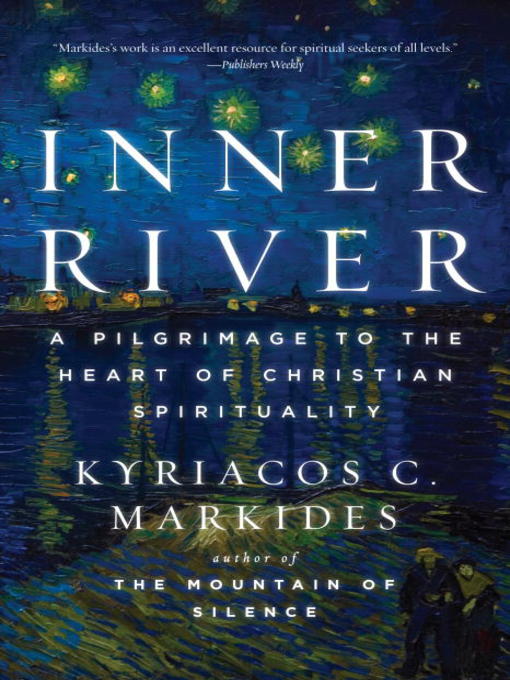
Inner River
A Pilgrimage to the Heart of Christian Spirituality
کتاب های مرتبط
- اطلاعات
- نقد و بررسی
- دیدگاه کاربران
نقد و بررسی

January 15, 2012
A scholar's personal exploration of the mystical side of Eastern Orthodoxy. Exploring mysticism first as an academic but then also as a believer, Markides (Sociology/Univ. of Maine; Gifts of the Desert: The Forgotten Path of Christian Spirituality, 2005, etc.) shares a variety of experiences that have most recently shaped his understanding of the subject. Much of the book revolves around Father Maximos, a respected monk at Mount Athos, a leading center of Greek Orthodox monasticism. Through multiple conversations with Father Maximos, the author shares monastic wisdom on a wide array of topics, including the seven fruits of the spirit: love, joy, peace, patience, kindness, goodness, faithfulness, gentleness and self-control. On one visit to Cyprus, Markides and his wife visited an aging novelist and engaged him in a lengthy discussion about the existence or nonexistence of an afterlife. In another chapter, the author chronicles his visit to St. Catherine Monastery at Mt. Sinai, where he viewed its ancient artistic and historical treasures and climbed the holy mountain where Moses received the Ten Commandments. As a student of world religions and a sociologist, Markides sees Orthodoxy from a larger perspective: "I realized that what many Western intellectuals searched for in the ashrams of India and the lamaseries of Tibet--that is, an experiential pathway to the Divine--has been all along within the very heart of Christianity." The author succeeds in providing a meaningful look at Orthodoxy and mysticism, but his use of extended dialogue is often forced. Nonetheless, Markides creates a useful collage of contemporary Eastern Orthodoxy, "an integrated system of spiritual practices within Christianity that can lead to a direct experience of God." A flawed but worthwhile glimpse at a rich tradition.
COPYRIGHT(2012) Kirkus Reviews, ALL RIGHTS RESERVED.

January 1, 2012
In this book, Markides (sociology, Univ. of Maine; Gifts of the Desert: The Forgotten Path of Christian Spirituality) continues his explorations of the Eastern Orthodox spirituality to which he was born but from which he drifted. His books are a piquant mixture of meditation, memoir, history, exegesis, and travel journal, focusing heavily on his dialog with his mentor, the Orthodox bishop Father Maximos. Too far-reaching to summarize, these dialogs emphasize, among other things, the awesome love of God for all created things and the difficult joy of imitating that love. VERDICT Not just for Orthodox Christians, this interesting volume will intrigue Western Christians and may be just the thing for inquiring readers ready to move beyond.
Copyright 2012 Library Journal, LLC Used with permission.

November 15, 2011
Modernity, materialism, and modern science have replaced religious belief for many and posed challenging questions to the faithful of the world's religious traditions. Markides readily acknowledges the contributions of modernity, especially its success in uncovering the workings of the physical universe. But he argues that a strictly modernist view leaves no room for nonmaterial or spiritual forces in human affairs and leads to the desacralization of Creation and the dehumanization of the individual. His book is a chronicle of his own spiritual journey and is at its best when recounting the wisdom of Father Maximos, a monk from an Orthodox monastery on Mt. Athos, who provides an introduction to the spiritual tradition of Orthodox Christianity, a tradition little known in the West that seeks a direct, albeit mystical, experience of God. Western Christians may find this a refreshing alternative. So, too, may those who consider themselves spiritual but not religious. This is a worthwhile book for anyone concerned with the human spirit or seeking an experience of the transcendent.(Reprinted with permission of Booklist, copyright 2011, American Library Association.)

























دیدگاه کاربران